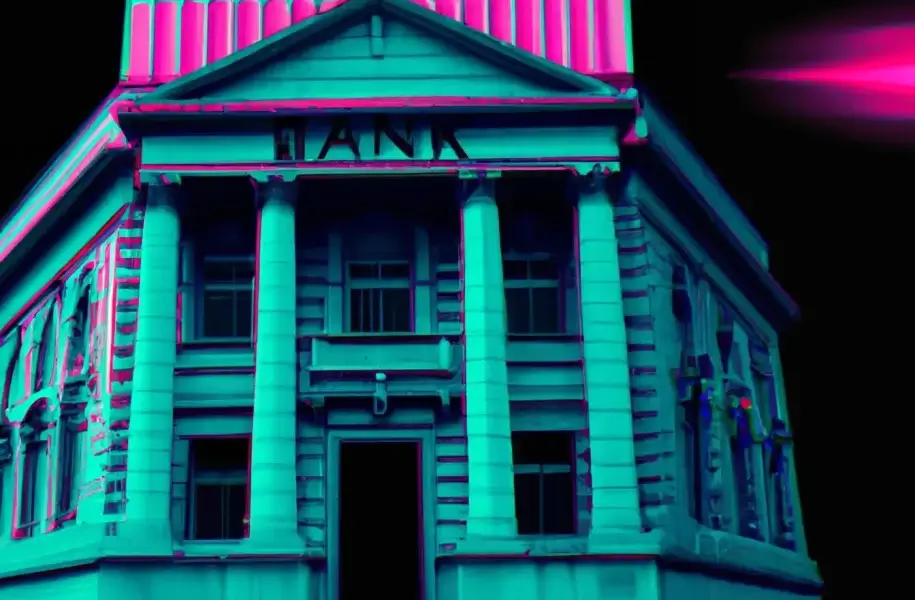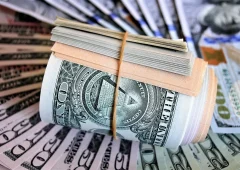Major U.S. Banks Struggle with Credit Card Debts
15.07.2024 7:30 1 min. read Alexander Stefanov
JPMorgan Chase and Wells Fargo are grappling with significant credit card debt issues. JPMorgan has over $500 million in bad mortgage debt despite making a $13.1 billion profit.
Wells Fargo’s debt has surged by 70%, with net charge-offs rising from $764 million in Q2 2023 to $1.3 billion last quarter. These debts, originating during the COVID-19 pandemic, are now considered unpayable, reflecting the broader economic strain and rising interest rates that have burdened many borrowers.
The roots of these debts trace back to the financial disruptions caused by the COVID-19 pandemic, which saw the Federal Reserve intervening with various measures. Despite these interventions, the economic recovery has been uneven, leading to increased interest rates and job market instability.
These factors have compounded financial pressures on borrowers, resulting in a significant portion of these loans becoming unpayable. While the banks are absorbing losses in their retail operations, they are compensating through other financial activities.
In response to these challenges, both JPMorgan Chase and Wells Fargo are diversifying their investment portfolios, including significant stakes in Bitcoin ETFs. JPMorgan has invested in BlackRock’s IBIT, Grayscale’s GBTC, and Fidelity’s FBTC, while Wells Fargo has a stake in ProShares Bitcoin Futures ETF.
-
1
U.S. PCE Inflation Rises for First Time Since February, Fed Rate Cut Likely Delayed
27.06.2025 18:00 1 min. read -
2
Key U.S. Economic Events to Watch Next Week
06.07.2025 19:00 2 min. read -
3
Gold Beats U.S. Stock Market Over 25 Years, Even With Dividends Included
13.07.2025 15:00 1 min. read -
4
U.S. Announces Sweeping New Tariffs on 30+ Countries
12.07.2025 16:30 2 min. read -
5
US Inflation Heats Up in June, Fueling Uncertainty Around Fed Cuts
15.07.2025 16:15 2 min. read
US Inflation Heats Up in June, Fueling Uncertainty Around Fed Cuts
U.S. inflation accelerated in June, dealing a potential setback to expectations of imminent Federal Reserve rate cuts.
Gold Beats U.S. Stock Market Over 25 Years, Even With Dividends Included
In a surprising long-term performance shift, gold has officially outpaced the U.S. stock market over the past 25 years—dividends included.
U.S. Announces Sweeping New Tariffs on 30+ Countries
The United States has rolled out a broad set of new import tariffs this week, targeting over 30 countries and economic blocs in a sharp escalation of its trade protection measures, according to list from WatcherGuru.
Key U.S. Economic Events to Watch Next Week
After a week of record-setting gains in U.S. markets, investors are shifting focus to a quieter yet crucial stretch of macroeconomic developments.
-
1
U.S. PCE Inflation Rises for First Time Since February, Fed Rate Cut Likely Delayed
27.06.2025 18:00 1 min. read -
2
Key U.S. Economic Events to Watch Next Week
06.07.2025 19:00 2 min. read -
3
Gold Beats U.S. Stock Market Over 25 Years, Even With Dividends Included
13.07.2025 15:00 1 min. read -
4
U.S. Announces Sweeping New Tariffs on 30+ Countries
12.07.2025 16:30 2 min. read -
5
US Inflation Heats Up in June, Fueling Uncertainty Around Fed Cuts
15.07.2025 16:15 2 min. read


